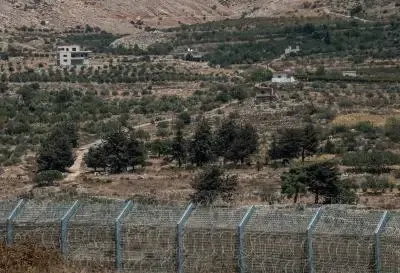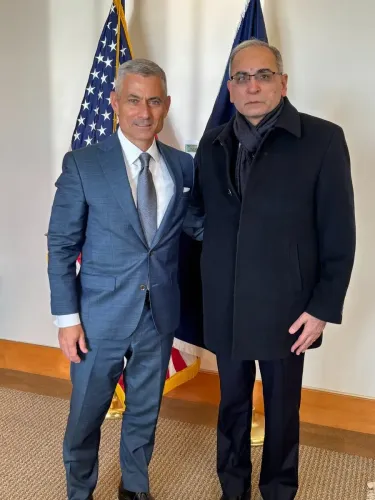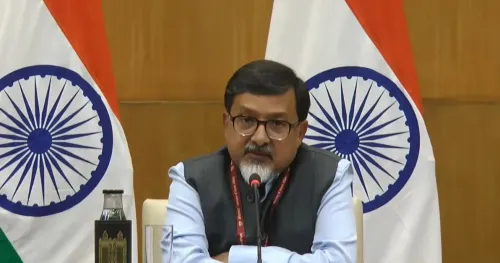Did Dozens of Israeli Druze Civilians Cross into Syria?

Synopsis
Key Takeaways
- Dozens of Israeli Druze civilians crossed into Syria.
- The incident occurred amid rising tensions in Sweida province.
- Nearly 600 fatalities reported due to recent clashes.
- Israeli Defence Forces condemn the crossing as a criminal act.
- U.S. mediation led to an agreement between Israeli and Syrian leaders.
Jerusalem, July 19 (NationPress) The Israel Defence Forces (IDF) disclosed on Saturday that a significant number of Israeli Druze civilians crossed the border into Syria against their will during the night, amidst rising tensions following recent skirmishes in Syria's southern Sweida province.
Intense confrontations broke out last week in Syria involving Druze fighters, Bedouin tribes, and forces from the interim Syrian government.
The border incident took place near Majdal Shams in the Israeli-occupied Golan Heights, where Israeli soldiers and Border Police sought to disperse a tumultuous gathering of civilians. Despite their attempts, a considerable number managed to enter Syrian territory, as reported by the IDF.
"The IDF unequivocally condemns any violence aimed at its personnel and security forces," stated the Israeli military, emphasizing that "crossing into Syria constitutes a criminal act that jeopardizes both the involved civilians and IDF personnel."
The military added that measures are being taken to facilitate the return of those who crossed the border, as reported by Xinhua news agency.
On Saturday, US Special Envoy for Syria, Tom Barrack, revealed that Israeli Prime Minister Benjamin Netanyahu and Syrian interim leader Ahmed al-Sharaa reached an agreement to halt hostilities, mediated by the United States, following recent deadly sectarian clashes in southern Syria that led to Israeli intervention through extensive airstrikes.
The sudden outbreak of violence in Syria's southern Sweida province has triggered a complex and escalating crisis, highlighting the precarious nature of Syria's stability just six months post the fall of the previous government, sending tremors throughout the region.
Over the last week, Sweida has seen some of the most lethal intra-Syrian confrontations in years. The conflict, which initially began as a local dispute between the Druze community and Bedouin tribesmen, rapidly evolved into a large-scale urban warfare involving Syrian government forces.
By Thursday, nearly 600 fatalities were reported, including numerous civilians and hundreds of fighters from all factions, according to the Britain-based Syrian Observatory for Human Rights (SOHR).









